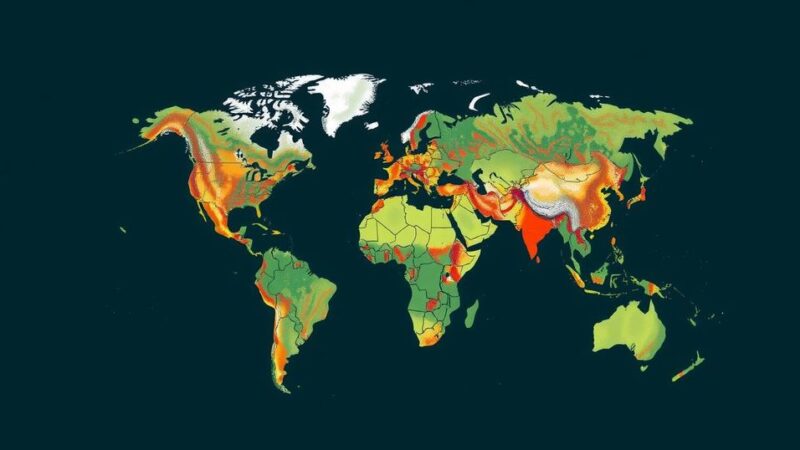Amnesty International has accused France of breaching a UN arms embargo by supplying military technology used by the RSF in Sudan’s civil war. The report highlights the active use of the French-made Galix defense system in combat, raising concerns about human rights violations. The organization has called for the cessation of arms supplies and a broadened embargo, amidst ongoing conflict leading to significant casualties and displacement.
Amnesty International has reported that French military technology is being deployed in Sudan’s ongoing civil conflict, breaching a United Nations arms embargo. The rights organization revealed that the Rapid Support Forces (RSF) militia is utilizing vehicles equipped with the French-made Galix defense system, supplied through the United Arab Emirates, as they confront the Sudanese army in the Darfur region. Agnès Callamard, Secretary General of Amnesty, stated, “Our research shows that weaponry designed and manufactured in France is in active use on the battlefield in Sudan.” Despite the serious allegations, French authorities have not issued a response, while the UAE has denied arming the RSF. Amnesty highlighted that these weapons risk facilitating significant human rights violations and urged the French government to intervene and halt the supply to the UAE.
Amnesty International has presented verified evidence, including images of destroyed vehicles showcasing the Galix system, illustrating the arms in operational use. The organization further emphasized that if France cannot ensure through export controls that such arms do not reach conflict areas like Sudan, it must refrain from authorizing those exports. Since 2004, the UN has maintained an arms embargo on the Darfur region in response to widespread allegations of ethnic cleansing against non-Arab populations. Amnesty has called for the embargo to expand across all of Sudan, urging international accountability regarding arms supplies to the factions involved in the conflict.
Since April 2023, a fierce power struggle between the RSF, led by General Mohamed Hamdan Daglo, and the Sudanese army led by Abdel Fattah al-Burhan has resulted in escalating violence. The RSF has faced accusations of committing ethnic cleansing in Darfur, claims which the group rejects by attributing the violence to local militias. The eruption of hostilities has resulted in thousands of fatalities and widespread displacement, and both sides have been implicated in war crimes, illustrating the dire humanitarian crisis in the region.
The conflict in Sudan, particularly in the Darfur region, has deep roots involving systemic and ethnic tensions, exacerbated by a history of violence and governmental collapse. The ongoing civil war represents a violent struggle for power between former allies, as General Daglo and General al-Burhan contend for control. The United Nations first imposed an arms embargo on Darfur in 2004, aimed at mitigating violence against non-Arab ethnic groups, and the situation has since intensified. Amnesty International plays a crucial role in advocacy and raising awareness of human rights violations, urging stricter controls on arms exports to prevent escalation of conflicts and ensure accountability.
In summary, Amnesty International’s revelations regarding the use of French military technology in Sudan’s civil war underscore a critical failure in adhering to international arms embargo protocols. The organization calls for immediate action from the French government to cease the supply of arms and insists on a broader arms embargo across Sudan. As the conflict continues to yield severe human rights violations and humanitarian crises, the need for accountability and stronger regulatory measures is imperative to protect vulnerable populations in the region.
Original Source: www.bbc.com

